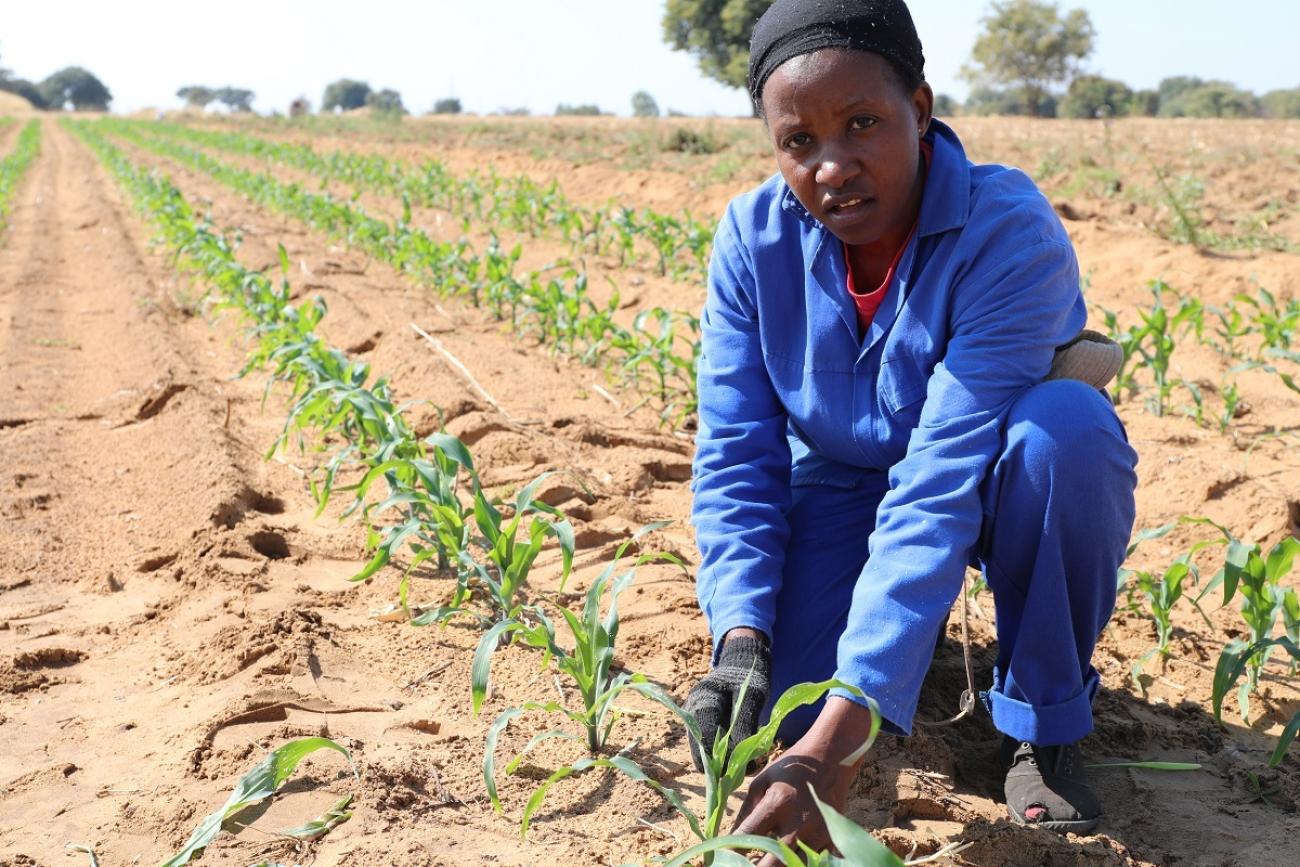Johannes Nathan Vries – a lead farmer from Karas region is a new comer to conservation agriculture. He anticipates better yields, and increased income for his household.
“Since adopting conservation agriculture (CA) this year, I have saved a lot of money for pesticides as the crop rotation practise keeps away pests. I noticed a huge reduction in the amount of water I use, and CA minimizes soil disturbance,” says Johannes, who described the traditional way of farming as obsolete and unproductive.
Johannes’s story is among many shared during the concluded Conservation Agriculture Forum held in Namibia. The 7th National Conservation Agriculture Forum (NCAF) brought over 70 farmers and stakeholders from various institutions involved in food systems to assess progress made in the regions where CA system is being implemented.
If well adopted, participants noted, conservation agriculture has a huge potential in promoting Namibia’s sustainable food systems and livelihoods through improved productivity.
NCAF brings together farmers, agricultural extension officers, farmer unions, and a variety of stakeholders from all 14 regions in Southern Africa.
“Conservation agriculture is among the smart agriculture practices contributing towards sustainable food systems. Sustainable food system is a system which brings together all actors involved in food systems value chains to ensure food and nutrition security,” said Mildred Kambinda, Acting Deputy Executive Director at the Department of Agriculture Development in the Ministry of Agriculture, Water and Land Reform, at the opening of the forum.
The meeting also presented an opportunity for agricultural extension staff to share lessons learned and best practices in conservation agriculture in their respective regions.
Harmonization and synergy among CA stakeholders
Through the project “Strengthening Coordination, Scaling Up and Governance of Conservation Agriculture in Southern Africa (SUCASA)”, the Food and Agriculture Organization of the United Nations (FAO) is supporting the National Conservation Agriculture Forum (NCAF) by reinforcing partnerships and collaboration among stakeholders in the region to promote the adoption of CA and ultimately help farmers become more resilient.
“It is critical to foster synergies in order to guide and accelerate CA adoption across diverse agro-ecological conditions and farming systems. The NCAF also serves as an information-sharing platform across stakeholders. FAO will continue to support efforts that encourage more farmers to adopt CA systems,” Farayi Zimudzi, FAO Representative noted.
In the short-term, the government of Namibia targets to have about 13 000 farmers by year 2022 implementing at least one of the CA principles, that include; minimum tillage, crop rotation and organic soil cover.
Related links:






